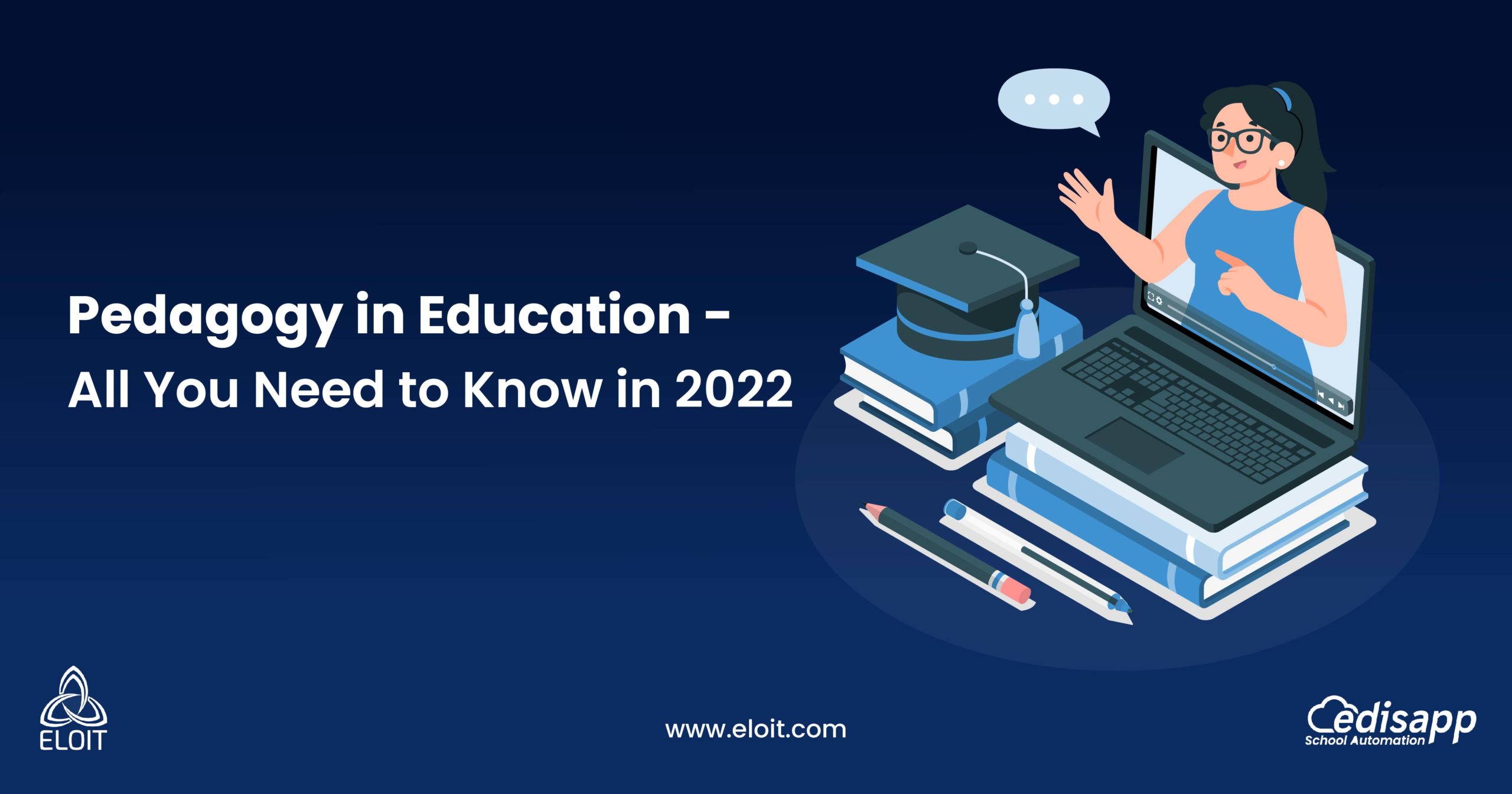Free Demo
Education Pedagogy and Pedagogical Approaches in Teaching
The word "Pedagogue" means "a teacher or a master." Teaching is one of the essential aspects of education, and we know that excellent teachers make the best citizens in the future. So, pedagogy is the apt word that defines the study of teaching. It also describes how content is presented and delivered to students in the educational sector.
Different teachers use different methods for teaching. But, the aim of education is the same for all. Teachers should ensure that students grasp the topics and are ready for exams. Also, some teaching habits help students develop critical thinking and problem-solving skills. So, education has a longtime impact on the life of students.
Let's explore what pedagogy in education is and how it improves the quality of teaching.
What is Pedagogy in Education?
Pedagogy is a simple method used for teaching. It is an act of encouraging students to master the topics and is also closely related to culture and ways of learning.
The main aim of pedagogy in education is to make students better learners and help them improve their skills. It also allows students to grasp the topics quickly and apply them in the real world.
Types of Pedagogy
The following section helps you understand what pedagogy is in education better. There are many types of pedagogy to explore and learn.
Pedagogy in Teaching
Pedagogy in teaching refers to the teacher's knowledge about how students learn. Therefore, teachers have to offer relevant information to students. For instance, there should be proper contact between teachers and students inside the classroom. In other words, it is all about providing education most helpfully.
Pedagogy in teaching will be either teacher-centric or student-centric. The former focuses on the teachers' knowledge and how they transfer it to the students. Teacher-centric exams will be conducted at the end of the course to test the students' knowledge. Likewise, students will be active players in student-centric pedagogy. Here also, teachers will give teachings, but the assessments will be formative.
Learning Pedagogy
One of the types of pedagogy is learning pedagogy. It is equally important as pedagogy in teaching. Learning pedagogy defines different ways in which students conceive topics. Teachers must provide personalized learning experiences for each student. Some students comprehend the subject by looking at images and videos. But, some other students prefer writing and reading to learning. Likewise, every student learns in different ways at varying paces. So, teachers have to find the best way for individual students to learn.
Pedagogy Examples
Below are some of the examples.
- Social Pedagogy
We know students are social persons. It means each of them comes from different families and cultures. Such types of pedagogy help students with their growth, well-being, and education.
For example, every country promotes social education to highlight the importance of kindness and empathy.
- Critical Pedagogy
One of the types of pedagogy that aims to challenge the thought process, practices, and views of the students, is called critical pedagogy. It ensures the active participation of the students. Critical pedagogy assumes that learning is not just receiving and memorizing data.
For example, teachers can show videos about topics like war and politics. This type of pedagogy encourages students to explore deeper and gain meaningful ideas.
- Culturally Responsive Pedagogy
This type of pedagogy defines the cultural diversity among students. As you know, students come from different cultures. A classroom is a group of students with different backgrounds and cultures. So, awareness about cultural diversity helps students gain new wisdom.
For example, teaching cooking lessons through video pedagogy will offer students access to cultural cuisines throughout the course.
- Socratic Pedagogy
Socratic pedagogy allows students to gain knowledge from different sources in addition to academics. Also, students will be able to develop their psychological and social skills through this method.
For example, problems in science and mathematics can be solved by relating them to real-life situations.
Top 5 Pedagogy Approaches
Pedagogy approaches mainly focus on creating an engaging and appealing learning ambiance for the students. Here are the top 5 pedagogy approaches that every school needs:
- Constructivist
Students merely listening to the teacher during classes will not be effective. This method promotes the active participation of students during lectures. It enables students to understand and gain knowledge. In other words, this method offers a constructive environment for students to develop critical thinking.
- Collaborative
In this method, students make a group, work together and solve problems. They are also encouraged to create ideas and complete the tasks themselves. It ensures that each student actively participates and contributes to the team. Students can also share their experiences, views and interact with each other.
- Inquiry-based
This approach builds a culture where the ideas of students are explored and challenged. Students are given real-world problems like a case study or project. Then, they are divided into small groups to complete their task. It empowers students to imagine themselves in these situations and find answers quickly.
- Integrative
The integrative approach sets a learning environment that helps students relate their tasks across the syllabus. It promotes sharing of ideas and strategies between students. This approach aims to ensure students are ready to face the challenges outside the classroom. Integration of ideas stimulates the brain to produce practical results in the real world.
- Reflective
The reflective approach enables students and teachers to evaluate themselves. They can monitor and analyze others doing their work. Students can learn a lot and assess themselves by discussing with others. It also gives them ideas to improve themselves in the future.
Future of Pedagogy
As we know, our world is changing at a rapid pace. The teaching practices must also be updated to keep up with this pace. Generational changes, family diversities, population, migration, etc., have influenced our educational system. Technology trends, employment, and economic shifts also have a great impact on education. Teachers must use all these effects to improve learning and develop the skills of their students.
The future of pedagogy lies where educators adapt their teaching methods to improve the skills of students. The teachers should make sure that students know what and why they're learning, what to do next, and so on. The students should be able to find their solutions, ask questions, and interact with others efficiently.
Teaching whatever is in the textbooks may not be practical nowadays. Student-centered coaching is the best way to improve school culture. Creating new pedagogies that induce a meaningful learning experience is paramount. The innovative learning techniques like formative assessments, teach-back, place-based learning, learning with robots and drones, etc, are the future of pedagogy.
Final Thoughts
Pedagogy in education comprises methods that matter in shaping teaching and learning processes. It sidesteps the complex teaching style of traditional methods and makes way for educators to help students understand things better.
Our modern society demands new ways of teaching and learning. Schools should use the latest tools to encourage pedagogy in teaching. One such tool is Edisapp. It is a complete school management app developed by Eloit technologies. It helps you manage all school activities online. This app has all new features that improve the quality of your education system!

